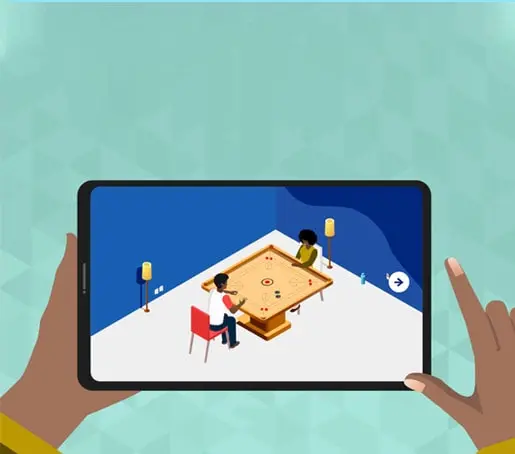If you’re looking for a career in tech, there’s no better time to get started. There could be 149 million new technology jobs by 2025. Breakthroughs are happening every day and the opportunities are only just beginning. Over a decade ago, terms like cloud automation engineer, big data scientist, and robotic process automation lead, would have drawn blank stares from most people. Today, they are among the hottest tech jobs in a rapidly growing list. Such a wide array of options can be daunting.
The good news is that there are multiple ways to start a career in the IT industry, whether through formal education, certifications, or self-learning. This guide will walk you through how to start with IT career, the best ways to build your skills, and the different career paths you can explore.
The Best Ways to Break Into a Tech Job
Breaking into the tech industry requires a combination of education, skills, networking, and practical experience. Here’s a step-by-step guide on how to begin a career in IT successfully.
Understand the Tech Industry Landscape
Before diving into how to start a job in IT, it’s essential to understand the industry’s structure. The tech field is diverse, including roles in software development, cybersecurity, network administration, and IT support.
Here are some key facts about the tech industry:
- The demand for tech professionals is consistently growing.
- Many roles don’t require a computer science degree.
- Remote work and flexible schedules are common.
- Salaries in IT are often higher than in many other industries.
By researching and understanding these trends, you can decide which area of IT aligns best with your interests and skills.

Explore Your Options
If you are wondering how to start a career in the IT industry, you must first be aware of your interests and skills. Even if they appear to be unrelated to tech, they can certainly get you started in the field. The digital disruption has left no industry untouched. Every company is now a tech company to some degree, opening limitless possibilities. An artistic temperament could set you up for a career in web design. A passion for writing could take you to the lucrative field of content marketing. And if you enjoy tackling complex problems, you could consider a career in web development. Know your strengths and interests, and you’re sure to find the right fit.
Learn the Necessary Skills
Once you have chosen an area of interest, it is time to develop the skills required for the job. Many IT roles require proficiency in programming languages, system administration, or troubleshooting. If you are wondering how to get started in IT with no experience, online courses, boot camps, and certification programs are a great way to acquire the necessary knowledge. Websites like Coursera, Udemy, and LinkedIn Learning offer beginner-friendly courses.
Build a Portfolio
A strong portfolio can help showcase your skills to potential employers. If you are interested in development roles, include projects that demonstrate your coding ability. If you are pursuing a career in cybersecurity, practice ethical hacking techniques in a lab environment. For IT support, document troubleshooting steps and problem-solving experiences. A portfolio can provide tangible proof of your skills, making you stand out in job applications.

Network
If you are learning how to start a job in IT, connecting with others who have made the transition can be motivating and helpful. There’s nothing like networking to boost your chances of getting noticed by the right people. A 2022 Hubspot study found that a whopping 85 percent of jobs are filled through networking. You could meet people both online and offline. On social media, connect with and follow individuals in the tech industry. Events related to technology are another promising way to meet professionals who could help you out. It also helps to let those in your circle who aren’t in tech know about your plans since they could connect you with someone who is.
Upskill Yourself
If you are exploring how to start a career in the IT field, certifications can provide a strong foundation. Once you’ve identified your area of interest, it’s time to delve deeper. Look for the basic skills you need in your chosen field. Online courses and boot camps are a great way to acquire these, whether you want to specialize in a particular field or learn from scratch. According to the 2021 Global Consumer Sentiment Survey by Emeritus, 13 percent of respondents who had taken up online learning were looking to start a new career, and 21 percent were looking to expand their opportunities. There are several free and paid online courses tailored to industry requirements that allow you to learn from anywhere in your own time.

Build Your Experience
If you are wondering how to start a career in IT without prior work experience, consider internships, freelancing, or volunteering. An internship could give you a taste of a future job and an opportunity to add basic skills to your belt. If you’re lucky, it could even end in a job offer. Alternatively, you could consider freelancing. It can help you pick up new skills and enhance existing ones. The gig economy is thriving, and you can find several opportunities online that fit your interests. You may even reach out to people in your personal network. With enough experience, you can begin building your portfolio to show potential employers what you’re capable of.
Leverage Your Current Skills
Understanding how to start an IT career can be easier if you identify ways to apply your existing skills. If you already have experience in a different industry, you could use your skills to cross over to a job in technology. Tech companies span different fields, be it education, real estate, fashion, healthcare, and tons more. Taking up a role in a familiar industry could make your transition to tech easier. And don’t underestimate the value of skills like leadership, communication, and problem-solving. The right combination of industry know-how and soft skills could set you up for a thriving tech career.
Prepare for Technical Interviews
Once you start applying for jobs, preparing for technical interviews is essential. Many IT roles require candidates to complete coding challenges, system troubleshooting tasks, or problem-solving exercises. Practice common interview questions, take mock assessments, and review key technical concepts. Websites like LeetCode and HackerRank can help you prepare for coding interviews.

Stay Current and Keep Learning
Technology is constantly changing, so staying informed is critical. Follow industry news, join professional groups, and participate in online tech forums. Whether you are in cybersecurity, software development, or IT support, continuous learning will help you grow in your career. This is especially important for those looking into how to begin a career in IT, as keeping up with new trends can set you apart from other candidates.
Exploring IT Career Paths
The IT field is incredibly diverse, offering a wide range of career paths. Here are some in-demand tech jobs:
Computer Support
If you are wondering how to start a career in IT support, roles in technical support and help desk services are a great entry point. These jobs involve assisting users with hardware and software issues, troubleshooting network problems, and managing IT infrastructure. Many companies hire IT support specialists with minimal experience, making this a good starting point.
For a step-by-step guide, check out our detailed article on how to become an IT support specialist, which covers essential skills, certifications, and job search strategies.

Cybersecurity
Cybersecurity professionals protect systems and data from cyber threats. Roles include security analysts, penetration testers, and security engineers. This field requires knowledge of security tools, ethical hacking, and risk management. Certifications like CompTIA Security+ and Certified Ethical Hacker (CEH) can help you break into this sector. If you are interested in job security and a high-demand role, cybersecurity is worth considering.
App and Software Development
Software developers create applications and programs for businesses and consumers. This career path requires proficiency in programming languages like Python, Java, or JavaScript. Many developers start by building personal projects or contributing to open-source code. To start a job in IT, learn to code and build software applications.
Web Development
Web developers design and maintain websites. Front-end developers focus on the user interface, while back-end developers manage server-side logic. Full-stack developers work on both. Knowledge of HTML, CSS, JavaScript, and frameworks like React or Angular is essential. A strong portfolio showcasing your web projects can help you land a job in this field.

Networks and Systems
IT infrastructure relies on networks and systems to function. Network administrators and system administrators ensure that an organization's IT environment runs smoothly. This field requires knowledge of operating systems, networking protocols, and cloud computing. Certifications such as Cisco CCNA and Microsoft Azure Fundamentals are valuable for this career path.
Conclusion
Breaking into the tech industry may seem overwhelming, but there are many ways to get started. By learning relevant skills, gaining experience, and networking with professionals, you can successfully transition into IT. Whether you are interested in starting a career in the IT industry, there are opportunities for beginners and career changers alike.
Looking for IT jobs in USA? Check out HGS USA for career opportunities in the tech sector.
Frequently Asked Questions (FAQs)
What is the easiest tech job for beginners?
Entry-level IT support roles, such as help desk technician or technical support specialist, are among the easiest for beginners. They require minimal prior experience and focus on troubleshooting software and hardware issues.
What is the fastest way to get into tech?
The fastest way to enter the tech industry is by completing certifications, taking online courses, and gaining hands-on experience through internships or freelance work. Many people start with IT support or web development due to the low barrier to entry.
Which degree is best for the IT field?
Degrees in computer science, information technology, cybersecurity, and software engineering are commonly pursued for IT careers. However, many tech jobs do not require a formal degree, and certifications or bootcamps can be alternative pathways.
What is the salary in IT?
IT salaries vary based on job role, experience, and location. Entry-level IT support roles typically pay between $40,000 and $60,000 per year, while software developers and cybersecurity professionals can earn upwards of $100,000 annually.
 India
India Canada
Canada Colombia
Colombia Jamaica
Jamaica Philippines
Philippines UK
UK US
US SA
SA



